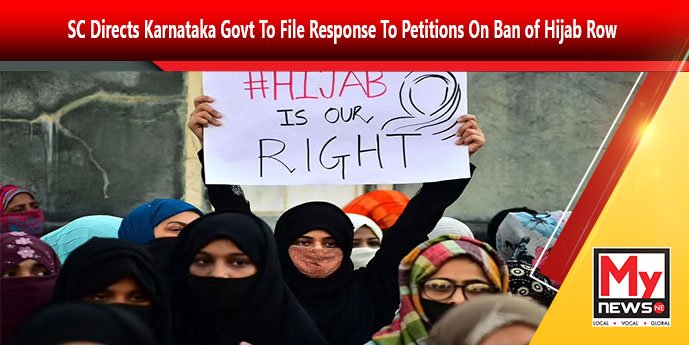SC Directs Karnataka Govt To File Response To Petitions On Ban of Hijab Row
Guwahati: The High Court’s rejection to overturn a ban on the hijab at educational institutions was challenged in petitions, and the Supreme Court of India on Monday ordered the Karnataka government to respond.
Although the highest court expressed concern about certain petitioners seeking an adjournment after first requesting an urgent hearing, it set the next hearing in the case for September 5.
“We won’t allow forum shopping,” the bench, which was made up of Justices Hemant Gupta and Sudhanshu Dhulia, declared. You merely desired a quick response. What’s different now?
In March of this year, the Karnataka High Court made the ruling that the wearing of the hijab is not an essential religious practise that should be safeguarded under Article 25 of the constitution. A group of Muslim students from the Government Pre-University Girls College in Udupi had petitioned for the right to wear the hijab in class, but their requests had been denied.
Following that, a number of people and groups appealed the judgement to the SC. The cases were repeatedly brought up for an urgent hearing before the bench led by the former Chief Justice N V Ramana, but they were never scheduled.
In the final week of Justice Ramana’s term, the case was finally scheduled for a hearing. On the first working day following CJI UU Lalit’s oath-taking, it was scheduled for hearing.
One of the appeals read, “Step-motherly behaviour of government authorities… prevented students from practising their faith and resulted in an unwanted law and order situation.”
It read, “Vehemently failed to apply its mind and was unable to understand the gravity of the situation as well as the core aspect of the Essential Religious Practices enshrined under Article 25 of the Constitution of India.”
“Wearing of hijab or headscarf is a practice that is essential to the practice of Islam,” the appeal further added.
It should be mentioned that the controversy surrounding hijabs started in January when six female students at Government PU College in Udupi were denied access to the campus because they were wearing them. Forbidding them entry, the institute invoked a uniform code.
At the campus gate, the students later staged a sit-in protest. A group of Hindu students in a number of Udupi colleges responded by beginning to attend class while donning saffron scarves.
With many Muslim groups seeing it as an infringement on their rights to freedom of religion, the problem quickly spread like wildfire to other regions of the state.
All students in Karnataka were instructed to “adhere to the uniform code” after the government intervened, thus outlawing the wearing of the hijab and saffron scarves.
On February 5, the education board issued a circular stating that only school-approved uniforms would be permitted for kids; other religious clothing would not be permitted in educational facilities.
The directive stated that students should wear clothes that “fit well with the spirit of equality and unity, and do not violate the social order” if a uniform is not mandated by management committees.

